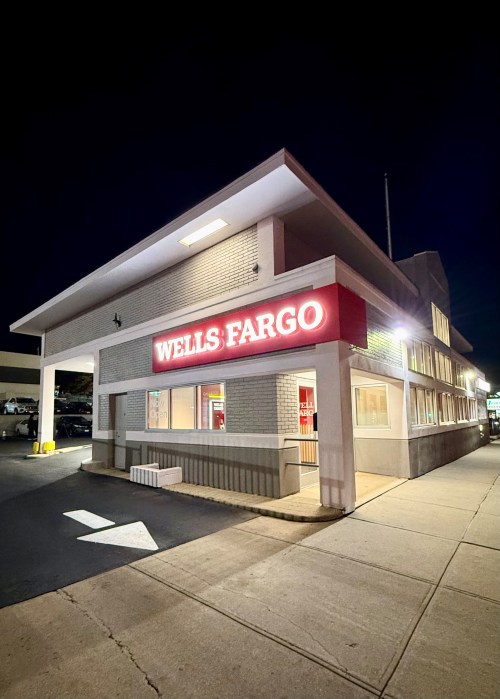
If there was a silver lining to the extraordinary security in force around Columbus Circle, it was that supporters wishing to cheer on the runners as they did their final mile were guaranteed easy, accessible viewing. While the general public was barred from going to the finish line inside the park, they could get an excellent view by following a mouse-like maze of metal fences to the Central Park side. Many portions of the fence protected the roadway were unattended, allowing a close up view of the runners, and three large bleachers at the entrance to the park were largely empty.
“It’s security theater, isn’t it?” said Bryan John, 47, a consultant who lives in the Financial District, marveling at the ocean of blue-uniformed police officers, some of whom had bomb-sniffing dogs on leashes. John, who is originally from London, said the extra precautions “were unnecessary, but they’re not intrusive.” While John didn’t resent the presence of police, “it’s a bit awkward to walk around,” as police barricades precluded any easy movement, he said.
John was attending with his wife, June John, 30, a biotech entrepreneur originally from Kenya who wanted to witness the legendary prowess of Kenyan runners. She wasn’t disappointed
“We saw (Geoffrey) Mutai and Prisca (Jeptoo)!” she said. “I’m Kenyan: I have to support them!” she said.
New York’s immigrant community, as well as foreign visitors, showed up waving the flags of their homelands and shouting encouragement to their countrymen and women in various languages.
It was the assembly of so many people from so many cultures, all supporting individual endurance and resilience that attracted Susan Cracow, 58, of the Upper West Side. “I have tears in my eyes. It’s just so poignant,” said Cracow, as the wheelchair runners glided in a slipstream toward the finish line. Cracow, who ran the NYC Marathon in 1988, was amazed by how the event has evolved. “Back then, it was grass roots and low tech. You just paid your money and ran. Now, it’s a much bigger deal,” and entry is not guaranteed to all. A runner and recent migrant from Laguna Beach, Calif., Crakow recently found out she has a stenotic aortic heart valve (“right now I can’t walk an hour without stopping”) so her status as an observer in an activity she describes as “my first love” is bittersweet. “I hope to do it two years from now with my daughter,” after surgery, she said of the NYC Marathon. “I hope to do it when I’m 60!”
Sarah Carp, 16, of Staten Island, who runs track for Notre Dame Academy, and came with family members, knows first hand the pain the runners were feeling and wanted to help fuel their will by hollering support. “Cheering really pushes you forward. I know in the cross country races, it just really helps you to get through it. You know people are rooting for you and that makes you want to do better,” Carp said.
Her brother, Sean Carp, 21, a Fordham University history student who lives a few blocks away from Columbus Circle, was impressed by the “heavy police presence,” but also peeved, as he had been misdirected away from his family in order to reach them. “It took me 30 minutes” to go the equivalent of two blocks, because he was given mistaken instructions, he said. “They’re doing their best, but there’s not enough communication” between police in various places, he said.
Maria Lagunova, 26, from Midtown West, had a vested interest in seeing “the love of my life,” (who is as of now her ex), run in the marathon. “I’ve spent every weekend in the park cycling next to him, keeping him hydrated, with two bottles of Gatorade attached to my bike,” as Marcel Schill, 42, trained, Lagunova said.
Lagunova had a prime spot on a bleacher, which she obtained with little problem. “For me, it was very easy. I didn’t bring any bags” and just walked through, she said. Lagunova was not remotely alarmed about the possibility of a terrorist attack, but her parents were. They live in Russia, but asked her in a recent phone call “how safe it is to be here.”
Overall, people were inured to their statuses in an ever tighter security state. As Christian Walsh, 59, of Westport, said, security measures “are the price of admission” to any crowded event after 9/11. Walsh, an investment banker, showed up with his wife, Julie, to cheer on their son, Dave, 24, who lives on the Lower East Side. They were checking his progress via GPS and were ready for a long day.
Cops even wanded the baby carriage of 8-months-old Joseph Carp, said his mother Melissa Carp, 48, a teacher from New Brighton, SI. She didn’t object.
“I feel comfortable with all the security,” she said. “I wouldn’t drag my son out – or bring my niece and nephew out – if I felt there was any danger.”





























